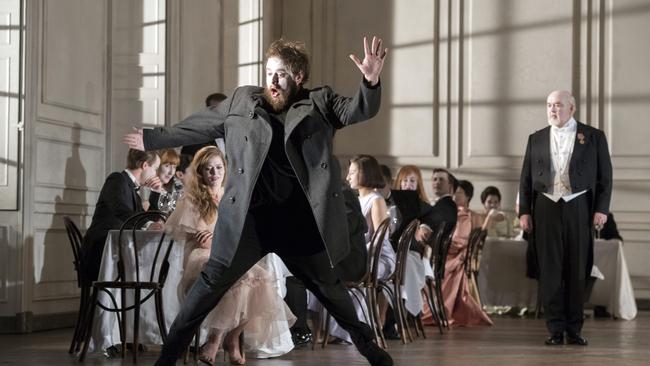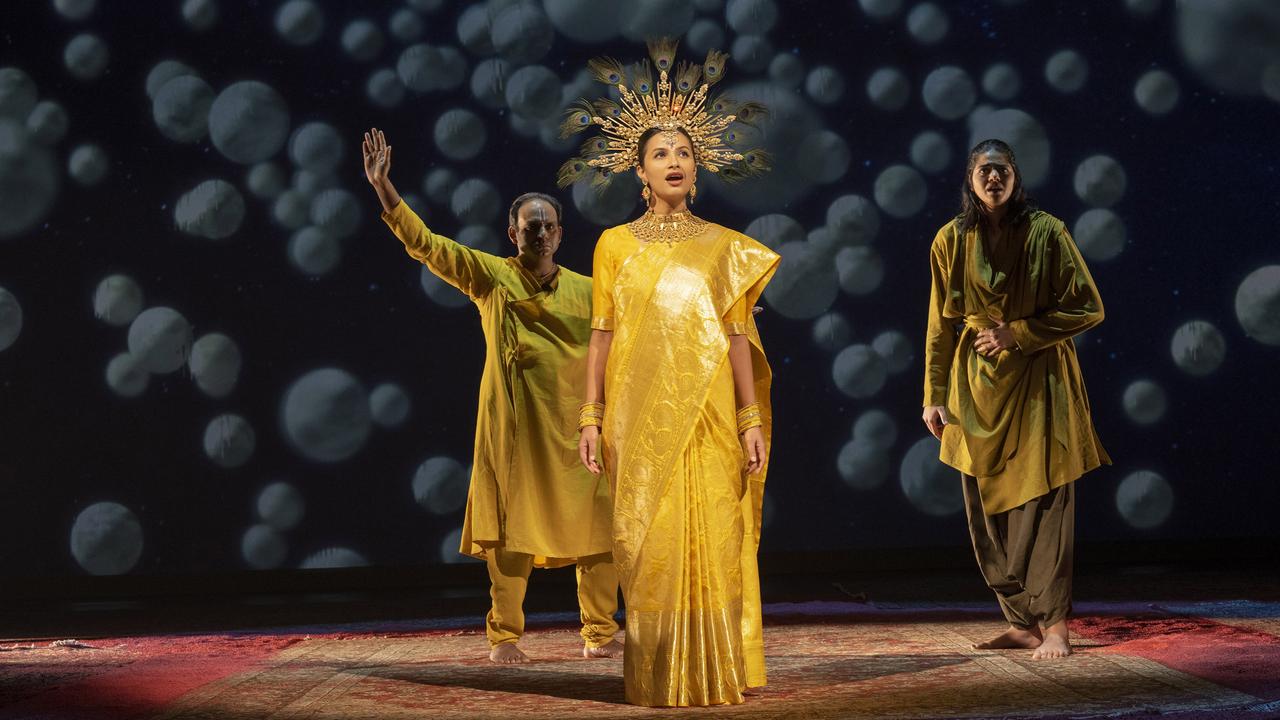Shakespeare’s Hamlet gets a new voice at Glyndebourne Festival
Many composers have attempted to write an operatic Hamlet but not one has really succeeded — until now.

Many composers have attempted to write an operatic Hamlet but not one has really succeeded. I think, though, that with his commission from the Glyndebourne Opera in Britain Australian composer Brett Dean has succeeded. Indeed, to judge from the enthusiasm of that opening-night audience, he had, to quote Shakespeare, “a palpable hit”.
The principal reason (apart from Dean’s own accomplishment) is the imaginative yet theatrical libretto that Matthew Jocelyn has crafted from several early versions of the play. As with the new German translation that the Berlin Schaubuehne presented during the Sydney Festival a few years ago, Jocelyn was not afraid to fillet and rearrange his sources. He begins, for example, with the interment of Old Hamlet and the wedding feast of Claudius and Gertrude. We, the audience, and the characters, are thrust immediately into the psychopathology of the Elsinore court.
Yet Dean’s music inducts us more gently, with a deep, almost chthonic orchestral rumble, punctuated by occasional drum and electronic sounds as we first see young Hamlet, head in his hands, almost paralysed at the edge of his father’s grave. From that point the grieving prince (magnificent English tenor Allan Clayton) is almost never off the stage. His role and responsibilities are enormous; the athleticism required of him is daunting, and the vocal challenges are varied and formidable. He achieved them all gloriously, refuting any sceptics who might assert that opera was not “real” theatre.
Even before he had sung a note, though, the wonderful chorus (placed around the auditorium as well as on the stage as wedding guests) had begun with a mystical quasi-chant, “Dust, noble dust, quintessence of dust”. At times their subsequent music was almost like a phalanx of ghosts; at others, they had the ferocity of avenging angels. This sustained importance of the chorus was a surprising masterstroke; surprising because in the play courtiers make no real contribution.
In truth, though, the entire cast served the composer and his drama marvellously. There was the Tweedledum-Tweedledee duo of Rosencrantz and Guildenstern, both countertenors (Rupert Enticknap and Christopher Lowery); Barbara Hannigan (Ophelia), melancholy and frenetic in her extended mad-scene; renowned bass John Tomlinson in the triple (but utterly different) roles of the redoubtable Ghost of Old Hamlet, the bustling Chief of the Players, and the droll grave digger. Yet every character has individual, carefully crafted music that, though unmistakeably contemporary, is also authentically vocal.
The other heroes were the energised conductor (Vladimir Jurowski) and his superb orchestra (the London Philharmonic); they played with an awesome range from a breathless hush to an importunate power. If I had to particularise (while still being conscious of the disciplined clarity and precision of the woodwinds), it would be about the elegiac solo cello, at the very close, when Horatio sings, “Now cracks a noble heart”. Mine certainly cracked.
Overall, the piece succeeds magnificently. Australia must see it as soon as possible.


